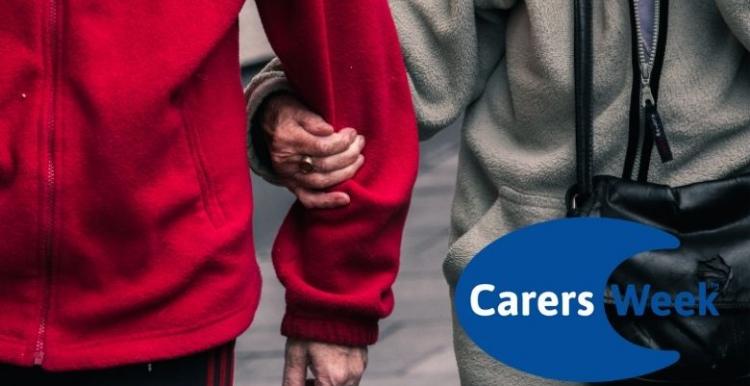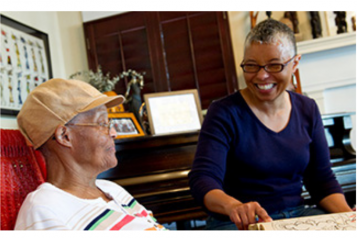Carers Week 2021: Martin's Story

We wanted to know how the Coronavirus pandemic has affected local carers so we partnered with Carers Trust Heart of England to hear the stories of carers and their loved ones.
This is Martin’s* experience of being a carer for his wife when she was diagnosed with dementia just before the first COVID-19 lockdown.
Martin’s* wife, Hilary*, was diagnosed with dementia following a hospital stay at the end of 2019. The shock of receiving the diagnosis was followed shortly after by the onset of the Coronavirus pandemic and the first national lockdown. Martin describes this period of time following the diagnosis as though their ‘world had been turned upside down’.
Martin feels as though they haven’t been given much specialist support or advice since Hilary’s diagnosis. This lack of information means Martin has relied on a friend’s knowledge from working in a care home to help him understand the condition and know where to find further help. He discovered through Carers Trust that Admiral Nurses exist to offer specialist advice to people with dementia and their families, and he has used the service to answer some of his questions about the disease.
Hilary’s has difficulty with walking and was initially given a walker that wasn’t suitable for her. Martin didn’t know how to resolve this until someone from Carers Trust visited and was able to assess Hilary to provide her with the correct walker. This means she can now enjoy short walks out of the house with Martin.
It has been down to Martin to find out answers and discover what help is available. Martin thinks it would be helpful if patients and their carers were given a folder of useful information when they are first diagnosed with dementia so they don’t have to rely on ‘word of mouth’ or searching online for answers.
* Names have been changed
What were the issues for Martin?
Martin wasn’t given useful support as a carer following his wife’s diagnosis of dementia. Martin had to rely on the advice of a friend and searching online for information. This means Martin wasn’t receiving information specifically tailored to his circumstances or his wife’s illness.
Why was this an issue?
Being diagnosed with dementia can be a big shock not only to the person with the condition but also to their family. People react in lots of different ways to the news and so having good support is important.
If Martin had received more support in the early stages, it could have had a positive effect on his wellbeing and lessened the feeling of his ‘world being turned upside down’.
Caring takes a lot of time and energy. Time spent looking up information online and trying to find support is time taken out of Martin’s day that could have been spent in other ways, such as managing tasks around the house, resting or doing something he finds relaxing.
What needs to happen?
Although there are a range of organisations that support people living with dementia and their families, it’s important not to assume everyone knows about them. If someone is caring for a person with dementia for the first time, they may not know what’s available or who to ask for more information.
By listening to over 700 people's experiences, Healthwatch England found that when carers aren’t given enough guidance about what support they might be entitled to, there is a strong chance they won’t discover what is available and simply struggle on until they reach crisis point.
It’s also important not to assume everyone can access information equally. Whilst Martin was able to search online for advice, it’s clear this wasn’t his preferred method.
Martin’s suggestion of a folder of information that can be handed to each person or their carer when a diagnosis of dementia is given during an appointment could be a really useful tool.
Are you a carer looking for support?
We've compiled a list of local support services for Coventry carers.


